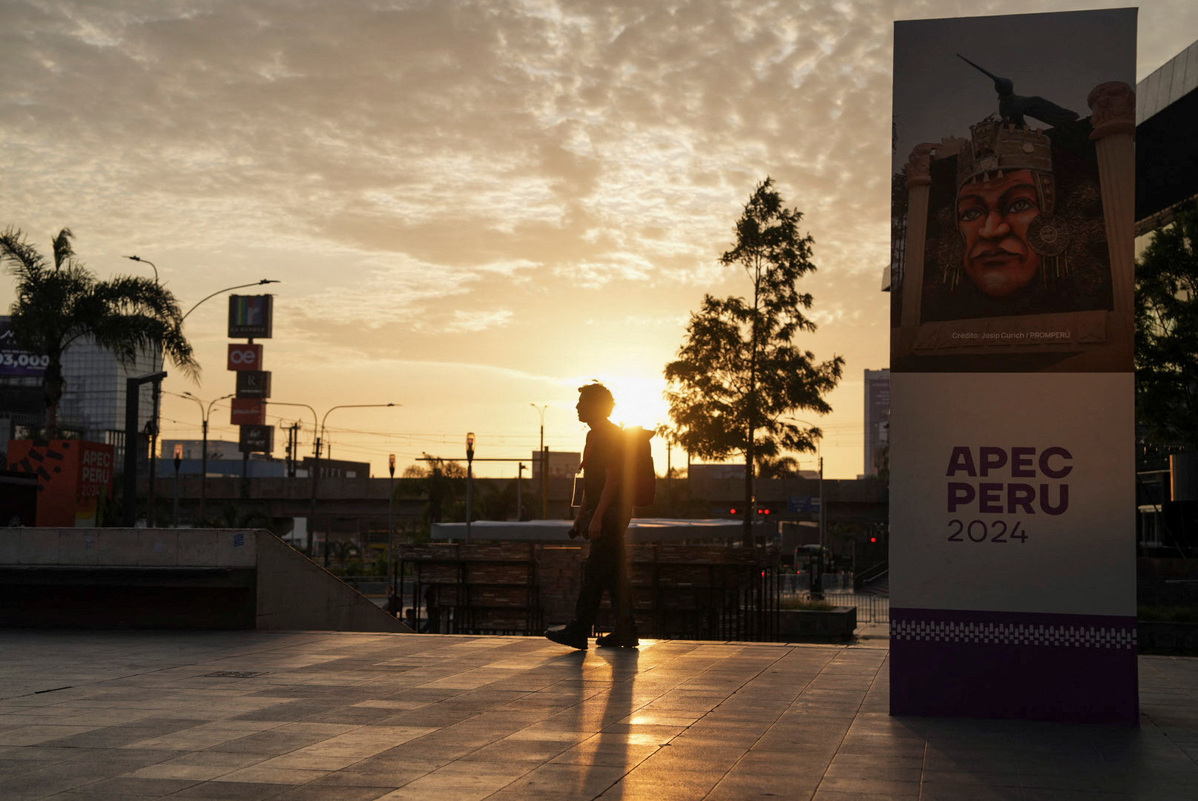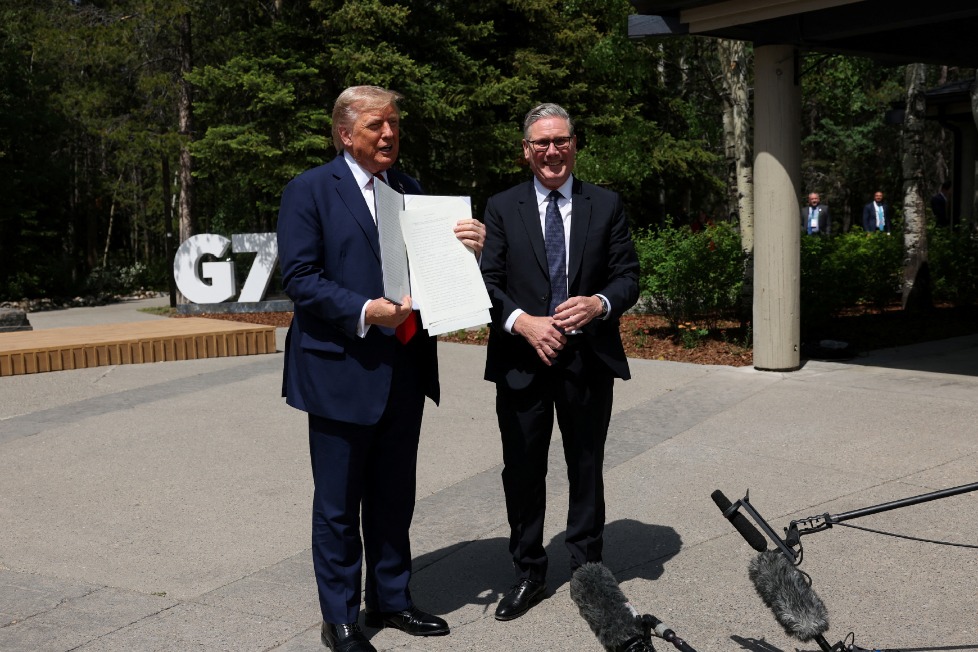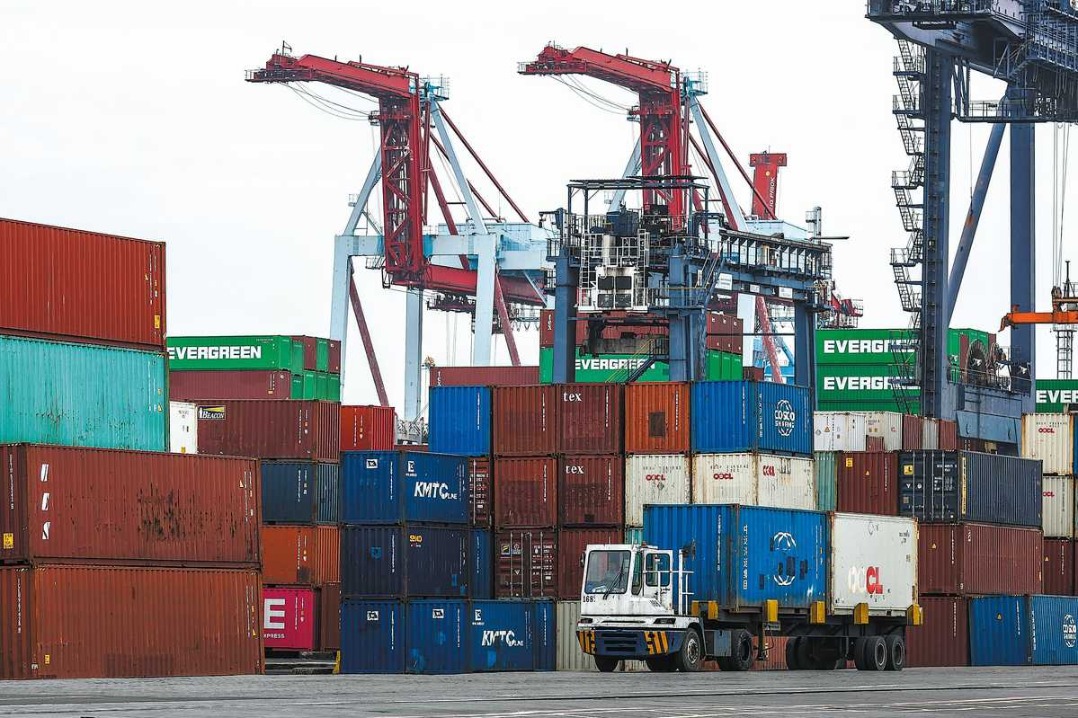China's initiatives promote stability in Asia-Pacific


President Xi Jinping, in his speech in November at the APEC Economic Leaders' Meeting in Lima, Peru, chalked out a new holistic and comprehensive road map for greater inclusiveness and openness to promote economic and international cooperation, through an open and integrated Asia-Pacific.
Xi called for staying committed to multilateralism and an open economy, firmly upholding the multilateral trading system with the World Trade Organization at its core, and advancing regional economic integration.
Hopefully, a fair, free, transparent and equitable trading system will further enhance and expand the scope, utility and importance of regional economic integration in the Asia-Pacific.
Xi's suggestions are timely in facilitating a positive, productive and participatory trading system producing win-win situations for every country in the region.
In recent years, China has concluded in principle a Comprehensive Agreement on Investment with the European Union, and applied to join the Comprehensive and Progressive Agreement for Trans-Pacific Partnership and the Digital Economy Partnership Agreement, vividly reflecting its strong desire for further opening-up and cooperation.
From systemic reform to institutional openness, China is integrating its efforts to support high international economic and trade standards and actively participating in international economic and trade rule negotiations through the Belt and Road Initiative and the China International Import Expo.
The China International Fair for Trade in Services and the China International Consumer Products Expo also clearly illustrate China's vision for trade liberalization and economic globalization.
China is moving toward further high-level opening-up and economic integration in the Asia-Pacific.
While pledges made by the United States in the Asia-Pacific often fail to materialize, resulting in empty promises and widespread disappointment, China-led BRI cooperation in the region presents a stark contrast. Chinese involvement in the region has directly improved education, healthcare, employment and more.
Xi has outlined a futuristic road map for the Asia-Pacific, comprising green transformation and development of qualitative industrialization, digitalization, innovation and, above all, open economic cooperation, which is the way forward to rescue economies, communities and nations' building capacities from global warming and economic protectionism.
It is a good omen that China, with a view to contributing to high-quality development of the Asia-Pacific, has once again put forward initiatives for the digitalization of commerce and trading systems, such as the application of digital bill of lading, capacity-building on green supply chains, exchanges and dialogue on approaches to artificial intelligence and the digitalization of food supply chains.
Critical analysis reveals that in recent years, China has placed significant emphasis on sustainable economic and social development, actively implementing the concept of green development.
Over the past decade, China has made remarkable contributions to global green transformation through its continuous technological advancements, complete industrial supply chains and favorable market environment.
It is pertinent to mention that China's green energy development has become a driving force for global energy transition, countering global inflation pressures while also addressing climate change.
China has established a relatively complete supply chain for wind and solar power industries at home, while actively integrating into the global clean energy supply chain, continuously sharing high-quality clean energy products with the world.
China's expertise in innovation and photovoltaic technologies have set new world records in conversion efficiency, with mass-produced advanced crystalline silicon photovoltaic cells now achieving conversion efficiencies exceeding 25 percent, reducing carbon footprints in the Asia-Pacific.
It is indeed a great workable suggestion consolidating further cooperation in economics, technology, artificial intelligence, digitalization and green transformation among the countries of the Asia-Pacific. Inclusiveness, integration, openness, modernization and qualitative industrialization would further boost regional economies and manufacturing sectors.
Initiatives proposed by Xi, including the Global Development Initiative, the Global Security Initiative and the Global Civilization Initiative, and shared prosperity, can be guarantors of peace, stability, harmony and multiculturalism in the Asia-Pacific.
Xi's suggestions and proposals are holistic, comprehensive, positive, productive and participatory, promoting regional socioeconomic integration and prosperity, facilitating the eradication of poverty, the generation of new jobs, women's empowerment, successful handling of non-state actors, and enhancing qualitative industrialization, gearing the region's economies toward quick recovery.
In summary, Xi's appeals and proposals are workable, promoting peace, stability, harmony and the spirit of peaceful conflict resolution in the Asia-Pacific.
In fact, these appeals are based on the golden principles of development, dialogue, diplomacy and political determination to cater to the present needs and future demands of the Asia-Pacific.
China's transparency and easy accessibility invite all stakeholders, policymakers, potential traders and investors to invest in China without fear. China's Global Cross-Border Data Flow Cooperation Initiative vividly reflects its strong commitment toward a fair, free and equitable economic world order, and a greater role in global governance and the development of the Global South and underdeveloped countries.
Simply put, Xi's vision for Asia-Pacific Economic Cooperation is for greater trade, digitalization of economies, green transformation, integrated customs mechanisms, easy and smooth e-commerce and, above all, greater banking and financial integration as the way forward.
The author is director of The Center for South Asia& International Studies, a nongovernmental organization based in Islamabad, Pakistan.

































